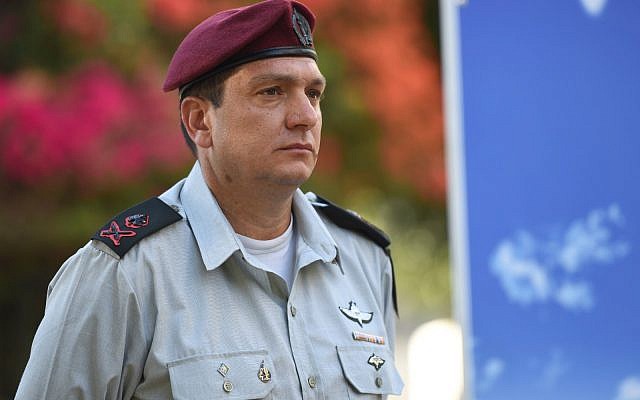Israel sent senior IDF brass to Russia to update their military counterparts regarding ongoing actions regarding Syria and Lebanon.
By Batya Jerenberg, World Israel News
The IDF delegation that flew to a meeting with Russian army officers in Moscow on Tuesday returned Thursday having “reached understandings” regarding the latest Israeli actions against Iran’s presence in Syria and its Hezbollah proxies in Lebanon, the IDF says.
Led by the head of the Operations Branch, General Aharon Haliva, the working visit was the first of its kind since the September IAF operation in Syria in which a Russian jet was shot down by Syrian forces in an attempt to hit Israeli planes.
The Russians rejected Israeli explanations regarding the incident.
However, this week’s consultations were heralded as a success. The Army tweeted that the meeting “was conducted in a good and professional atmosphere, during which IDF officers presented to their Russian counterparts the details of Operation Northern Shield.”
Northern Shield is the name of the current IDF mission to expose Hezbollah-dug tunnels leading from Lebanon into Israeli territory. Three have already been discovered and neutralized The operation is expected to last several more weeks.
Avoiding friction
“Another major issue was improving the mechanism for preventing friction between the two armies in the northern arena,” the IDF said.
“During the meeting, the IDF presented its policy of continuing to act against the Iranian entrenchment and the arming of the Hezbollah organization in Syria. The two delegations reached understandings and agreed to continue working together,” the IDF reported.
The visit was arranged after Prime Minister and Defense Minster Benjamin Netanyahu spoke with his Russian counterpart Vladimir Putin. Putin told Netanyahu that maintaining stability is his priority in the area of the Lebanese border in accordance with U.N. Resolution 1701.
The Israeli government has already formally protested to the United Nations that the tunnels are a blatant violation of that resolution, which is meant to ensure peace following the Second Lebanon War.
Under its terms, Hezbollah terrorists are not allowed to conduct activity in southern Lebanon, with a U.N. military force (UNIFIL) in place to enforce the ban. The UNIFIL commander saw the first two tunnels and admitted that they are a violation of the resolution.


